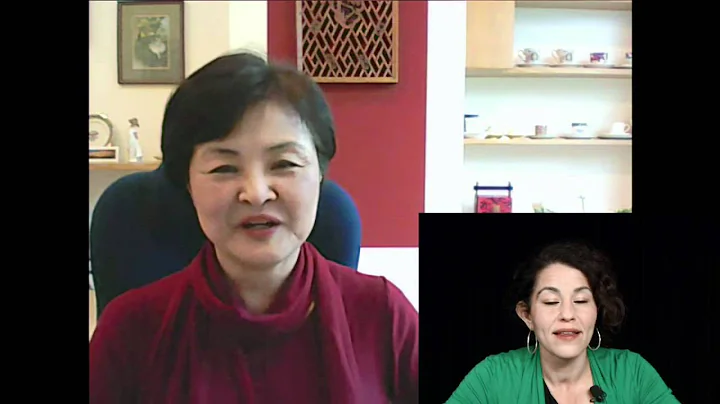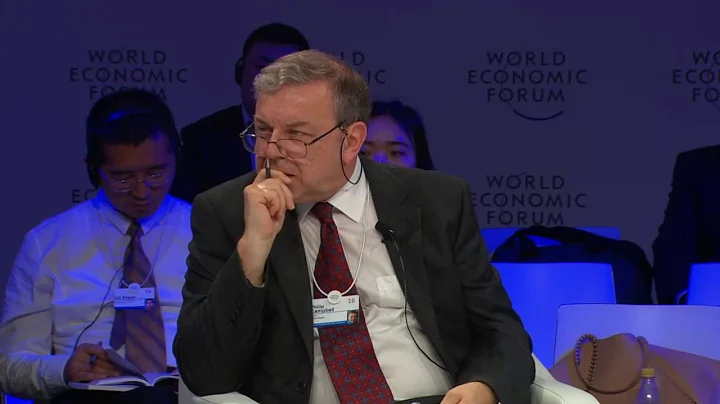Central Research Institute was established in 1928. It is the first national scientific research institute in Chinese history that integrates natural sciences, humanities and social sciences. It is directly under the Nanjing National Government, parallel to the Ministry of Education, and represents China in dialogue with the international academic community. At the beginning of its establishment, it tried to imitate the French Royal Academy of Sciences and the Soviet National Academy of Sciences in terms of structure.

In 1935, Academia Sinica established the Academia Sinica Council. The second and third annual meeting was held in Nanjing from October 20 to 22, 1946, where a series of specific issues related to the academician system were discussed. Finally, the "Draft Regulations for the Election of Academicians" was formed in April 1947, and voting by mail was adopted. The Academia Sinica held its annual meeting in March 1948, and elected 81 first academicians of the Academia Sinica. Among them, there are 28 academicians in the humanities group, 28 academicians in the mathematics and physics group, and 25 academicians in the biology group. It includes a large number of academic talents such as Hu Shi, Fu Sinian , Zhu Jiahua, Liang Sicheng , Hu Xiansu , Ling Hongxun, etc.
List of the first academicians of Academia Sinica

28 academicians of the Mathematics Group:
Jiang Lifu (1890.7.4-1978.2.3), mathematician.
Xu Baoluan (1910.9.1-1970.12.18), mathematician.
Chen Shengshen (1911.10.28-2004.12.3), mathematician.
Hua Luogeng (1910.11.12-1985.6.12.), mathematician.
Su Buqing (1902.9.23-2003.3.17), mathematician.
Wu Dayou (1907.9.29-2000.3.4) physicist.
Wu Youxun (1897.4.26-1977.11.30), physicist.
Li Shuhua (1889.2.10-1979.7.5), physicist.
Ye Qisun (1898.7.16-1977.1.13), physicist.
Zhao Zhongyao (1902.6.27-1998.5.28), nuclear physicist.
Yan Jici (1901.1.23-1996.11.2), physicist.
Rao Yutai (1891.12.1-1968.10.16), physicist.
Wu Xian (1893.11.24-1959.8.8), biochemist and nutritionist.
Wu Xuezhou (1902.9.20-1983.10.31), physical chemist.
Zhuang Changgong (1894.12.25-1962.2.15), organic chemist.
Zeng Zhaolan (1899.5.25-1967.12.8), chemist.
Zhu Jiahua (1893.5.30-1963.1.3), geologist.
Li Siguang (1889.10.26-1971.4.29), geologist.
Weng Wenhao (1889.7.26-1971.1.27), geologist.
Huang Jiqing (1904.3.30-1995.3.22), geologist.
Yang Zhongjian (1897.6.1-1979.1.15), paleontologist, stratigrapher, and geologist.
Xie Jiarong (1903.9.7-1966.8.14), geologist and mineral deposit scientist.
Zhu Kezhen (1890.3.7-1974.2.7), geographer and meteorologist.
Zhou Ren (1892.8.5-1973.12.3), metallurgist and ceramicist.
Hou Debang (1890.8.9-1974.8.26), chemist.
Mao Yisheng (1896.1.9-1989.11.12), civil engineer and bridge expert.
Ling Hongxun (1894.4.15-1981.8.15), an expert in civil and railway engineering.
Sa Bendong (1902.7.24-1949.1.31), physicist and electrical engineering expert.
25 academicians of the biology group:
Wang Jiaqi (1898.5.5-1976.12.19), zoologist.
Wu Xianwen (1900.3.15-1985.4.3), zoologist, ichthyologist and nematologist.
Bei Shizhang (1903.10.10-2009.10.29), experimental biologist, cell biologist.
Bingzhi (1886.4.9-1965.2.21), zoologist.
Chen Zhen (1894.3.12-1957.11.15), zoologist and geneticist.
Tong Dizhou (1902.5.28-1979.3.30), experimental embryologist.
Hu Xiansu (1894.5.24-1968.7.16), botanist.
Yin Hongzhang (1908.10.1-1992.11.30), plant physiologist.
Zhang Jingyue (1895.10.29-1975.4.24), plant morphologist.
Qian Chongshu (1883.11.11-1965.12.28), botanist.
Dai Fanglan (1893.5.4 -1973.1.3), mycologist and plant pathologist.
Luo Zongluo (1898.8.2-1978.10.26), plant physiologist.
Li Zongen (1894.9.10-1962), a tropical diseases medical scientist.
Yuan Yijin (1899.10.30-2003.3.22), medical scientist.
Zhang Xiaoqian (1897.12.28-1987.8.8), internal medicine expert and medical scientist.
Chen Kehui (1898.2.26-1988.12.12), pharmacologist.
Wu Dingliang (1893.1.5-1969.3.24), anthropologist.
Wang Jingxi (1893.7.7-1968.6.30), a modern physiological psychologist.
Lin Kesheng (1897.10.15-1969.7.8), physiologist.
Tang Peisong (1903.11.12-2001.9.6), plant physiologist and biochemist.
Feng Depei (1907.2.20-1995.4.10), physiologist and neurobiologist.
Cai Qiao (1897.10.11-1990.7.29), physiologist and medical educator.
Li Xianwen (1902.10.10-1976.7.4), cytogeneticist and crop breeder.
Yu Dafu (1901.2.19-1993.5.15), plant pathologist and agricultural microbiologist.
Deng Shuqun (1902.12.12 -1970.5.1), mycologist, plant pathologist and forester.
There are 28 academicians in the humanities group:
Wu Jingheng (1865.3.25-1953.10.30), political scientist and educator.
Jin Yuelin (1895.7.14-1984.10.19), philosopher and logician.
Tang Yongtong (1893.8.4-1964.5.1), a historian of philosophy and Buddhism.
Feng Youlan (1895.12.4-1990.11.26), philosopher.
Yu Jiaxi (1884.2.9-1955.1.23), linguist, bibliographer, and paleontologist.
Hu Shi (1891.12.17-1962.2.24), historian, writer and philosopher.
Zhang Yuanji (1867.10.25-1959.8.14), publisher.
Yang Shuda (1885.6.1-1956.2.14), Chinese philologist.
Liu Yizheng (1880.2.5-1956.2.3), historian, classical writer, and librarian.
Chen Yuan (1880.11.12-1971.6.21), Chinese historian and religious historian.
Chen Yinke (1890.7.3-1969.10.7), historian, classical literature researcher, and linguist.
Fu Sinian (1896.3.26-1950.12.20), historian and expert in classical literature.
Gu Jiegang (1893.5.8-1980.12.25), historian and folklorist.
Li Fanggui (1902.8.20-1987.8.21), linguist.
Zhao Yuanren (1892.11.3-1982.2.25), linguist.
Li Ji (1896.7.12-1979.8.1), anthropologist and archaeologist.
Liang Siyong (1904.11.13-1954.4.2), anthropologist and archaeologist.
Guo Moruo (1892.11.16-1978.6.12), writer, archaeologist and historian.
Dong Zuobin (1895.3.20-1963.11.23), oracle bone expert and ancient historian.
Liang Sicheng (1901.4.20-1972.1.9), architect.
Wang Shijie (1891.3.10-1981.4.21), jurist.
Wang Chonghui (1881.10.10-1958.3.15), political scientist and jurist.
Zhou Kunsheng (1889.3.6-1971.4.20), a jurist.
Qian Duansheng (1900.2.25-1990.1.21), political scientist and jurist.
Xiao Gongquan (1897.11.29-1981.11.4), political scientist.
Ma Yinchu (1882.6.24-1982.5.10), economist, educationist, and demographer.
Chen Da (1892.4.4-1975.1.16), sociologist and demographer.
Tao Menghe (1887.11.5-1960.4.17), sociologist.
was originally planned to be named "Member", but it was too vulgar, so it was later called "Academic Companion" or "Academy Companion". Instead of science, it had a religious flavor. Some said it should be translated as "Academic Member" according to the Western name. It sounds even worse, like a street sweeper.
After many twists and turns, Mr. Fu Sinian proposed to be called an "Academician".Listening and watching, I felt profound and elegant. After voting, it was unanimously approved.

On September 23, 1948, the first academician conference was held in the Arctic Pavilion in Nanjing. Only 48 of the above 81 academicians attended the meeting. After the founding of New China, 10 of these 81 academicians went to Taiwan, 12 went to foreign countries, and 59 chose to stay in New China, accounting for about 73%.
In 1955, 46 of the above-mentioned 81 academicians entered the ranks of the first batch of academicians (faculty members) in New China.

"The members of the Council were mainly composed of scholars, representing the highest level of academia at that time. Bureaucrats did not occupy an important position, so that their decisions could truly represent the academic community and not just become a mouthpiece for the government. Act strictly in accordance with the rules. , Respecting academic autonomy and academic freedom is a universal law of scientific development

On March 27, 1948, the "Academia Sinica" Council voted five times in Nanjing to elect 81 academicians, who were elected by the Kuomintang authorities because of their political opinions. Guo Moruo and Ma Yinchu, who were displeased, were also praised by later generations, which shows that the selection of academicians was fair and decent.





















